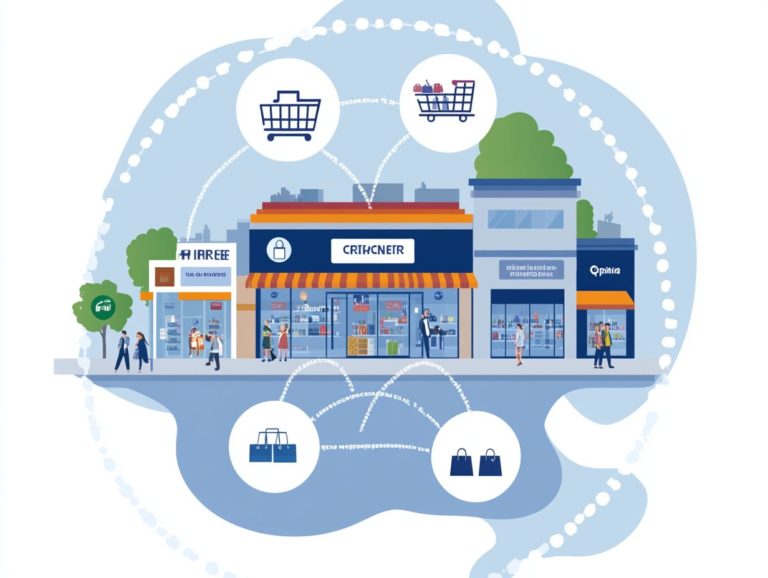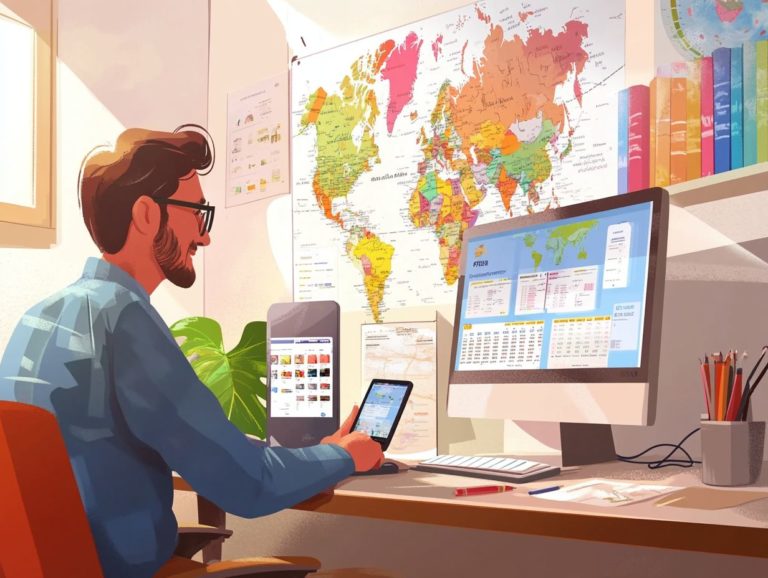66. Top Trends in CRM for the Hospitality Industry
In today s fast-paced hospitality landscape, effective Customer Relationship Management (CRM) is crucial for creating better guest connections and enhancing overall experiences.
Let s dive into the challenges you re facing right now in the hospitality industry, pinpointing pain points and highlighting the innovative trends reshaping CRM practices.
Key topics include:
- The importance of personalization
- Mobile accessibility
- Leveraging data analytics
- Managing online reputations
You’ll find best practices for implementing successful CRM strategies that truly resonate.
We will explore new ways to engage with customers. Discover the vital role CRM plays in elevating the hospitality experience, ensuring that you stay ahead in this competitive arena.
Contents
Key Takeaways:
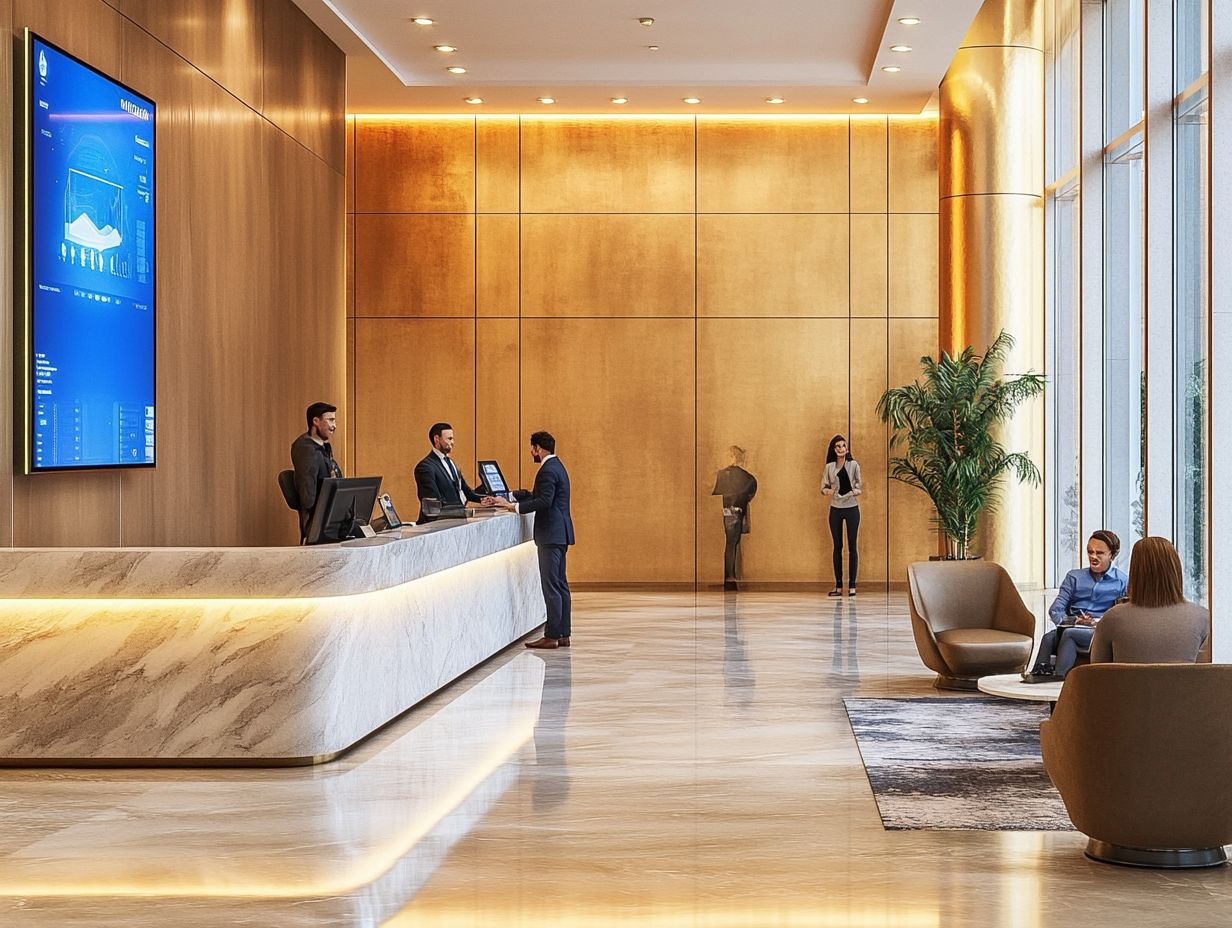
- Personalization is key to meeting customer needs.
- Mobile integration enhances communication.
- Data analytics drive better decision making.
What is CRM and Why is it Important?
CRM helps manage your interactions with customers. It improves their experience and boosts your sales.
With CRM software at your fingertips, you can analyze customer interactions, streamline processes, and elevate engagement through personalized service and data-driven insights.
In today’s digital landscape, embracing CRM systems is essential for maintaining a competitive edge and nurturing customer loyalty throughout their journey.
CRM encompasses various components, such as social CRM for direct engagement on social media, and mobile CRM for convenient, on-the-go access.
The automation features within these systems enable you to handle repetitive tasks with precision, freeing up valuable time for strategy development and meaningful customer interactions.
By effectively analyzing user data, CRM tools enable you to tailor your marketing efforts and predict customer behaviors. This comprehensive approach enhances user experience, fosters loyalty, and drives superior business outcomes through knowledge-based decision making.
Current Challenges in CRM for the Hospitality Industry
You face challenges in the hospitality industry. Data security, managing customer feedback, and adapting to market changes can hinder your CRM success.
Moreover, grasping customer behavior and achieving seamless service automation are substantial hurdles as you work to enhance the customer journey in this competitive landscape.
Identifying Pain Points and Areas for Improvement
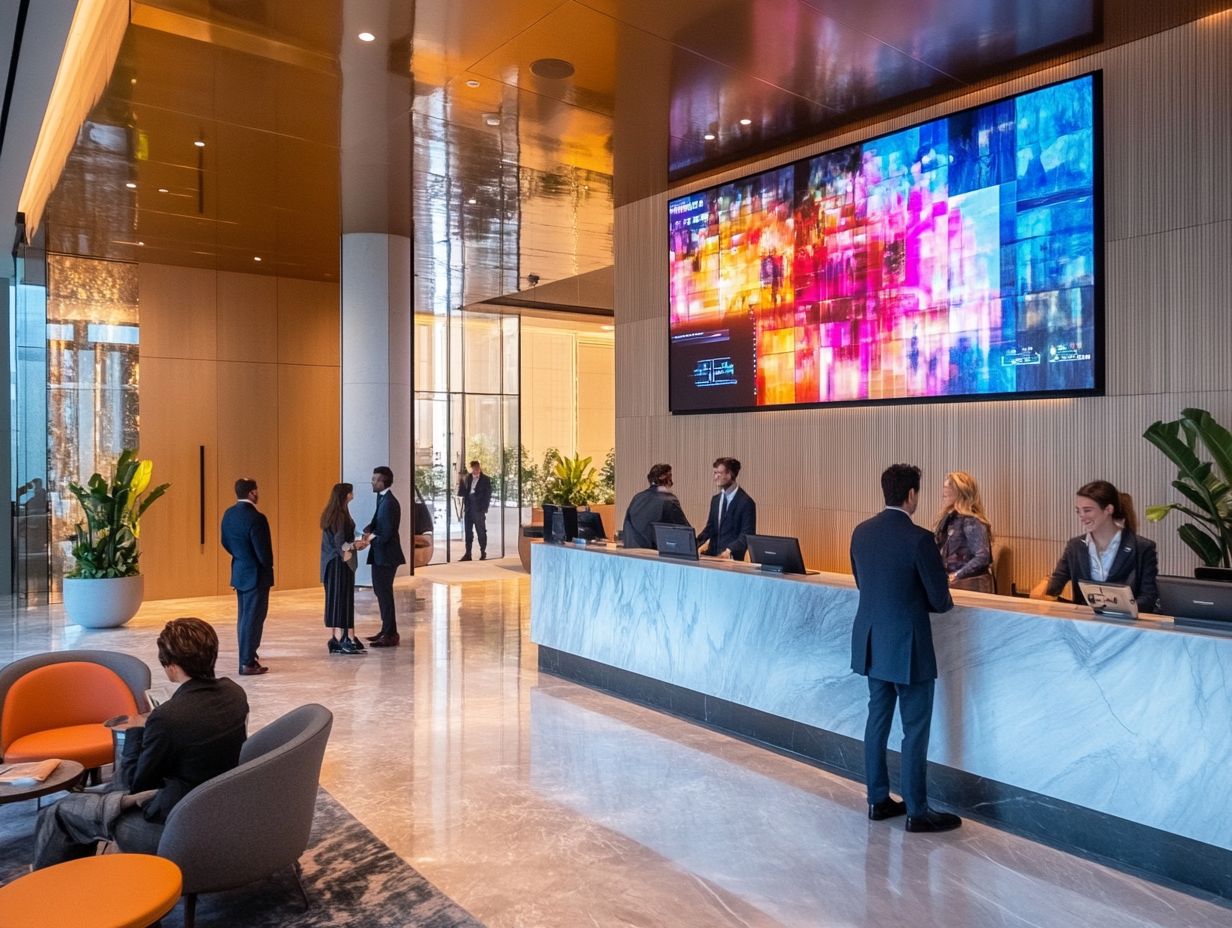
Finding pain points in your customer journey is vital. It helps improve engagement and effectiveness in your CRM strategies within the hospitality industry. Analyze user sentiment and feedback to uncover areas ripe for improvement, particularly in integrating mobile CRM solutions and service automation tools.
By harnessing data analysis, you can create personalized service experiences that cultivate greater customer loyalty and satisfaction.
For example, customers often feel frustrated when facing delays in support, feeling overlooked or undervalued. Addressing this concern not only streamlines communication but also reassures your customers that their needs take precedence. When personalized service is lacking, guests may feel like just another number instead of a valued individual.
Implement tailored communication strategies informed by past interactions and preferences. This attentive approach captures the interest of potential guests and fortifies long-term relationships, leading to improved customer retention rates and sustained satisfaction.
Top Trends in CRM for the Hospitality Industry
As the hospitality industry evolves, you’ll notice key trends in CRM that supports marketing in the travel industry that transform how businesses engage with their customers. The goal is to enhance service delivery and nurture customer loyalty.
The focus on personalization and customization is paving the way for better mobile access, facilitating seamless interactions across various channels.
Data analytics is changing customer retention strategies, allowing you to anticipate customer needs and behaviors more effectively than ever before.
1. Personalization and Customization
Personalization and customization in CRM allow you to tailor customer interactions based on individual preferences and behaviors. This significantly enhances the overall customer experience.
By leveraging user data and analytics, you can provide targeted product recommendations and services that resonate with each customer’s unique needs. This approach builds strong relationships and keeps customers coming back!
To implement effective personalized strategies, focus on gathering and analyzing customer data, like browsing patterns and purchase history, to create accurate customer profiles.
For instance, one hotel chain used sentiment analysis from guest feedback to refine their services. By identifying common pain points, they revamped their booking process and personalized marketing campaigns, boosting repeat bookings by 20%.
Another example involves a boutique hotel that offered tailored packages based on guest preferences. This not only elevated customer satisfaction but also enhanced their brand reputation.
2. Mobile Integration and Accessibility
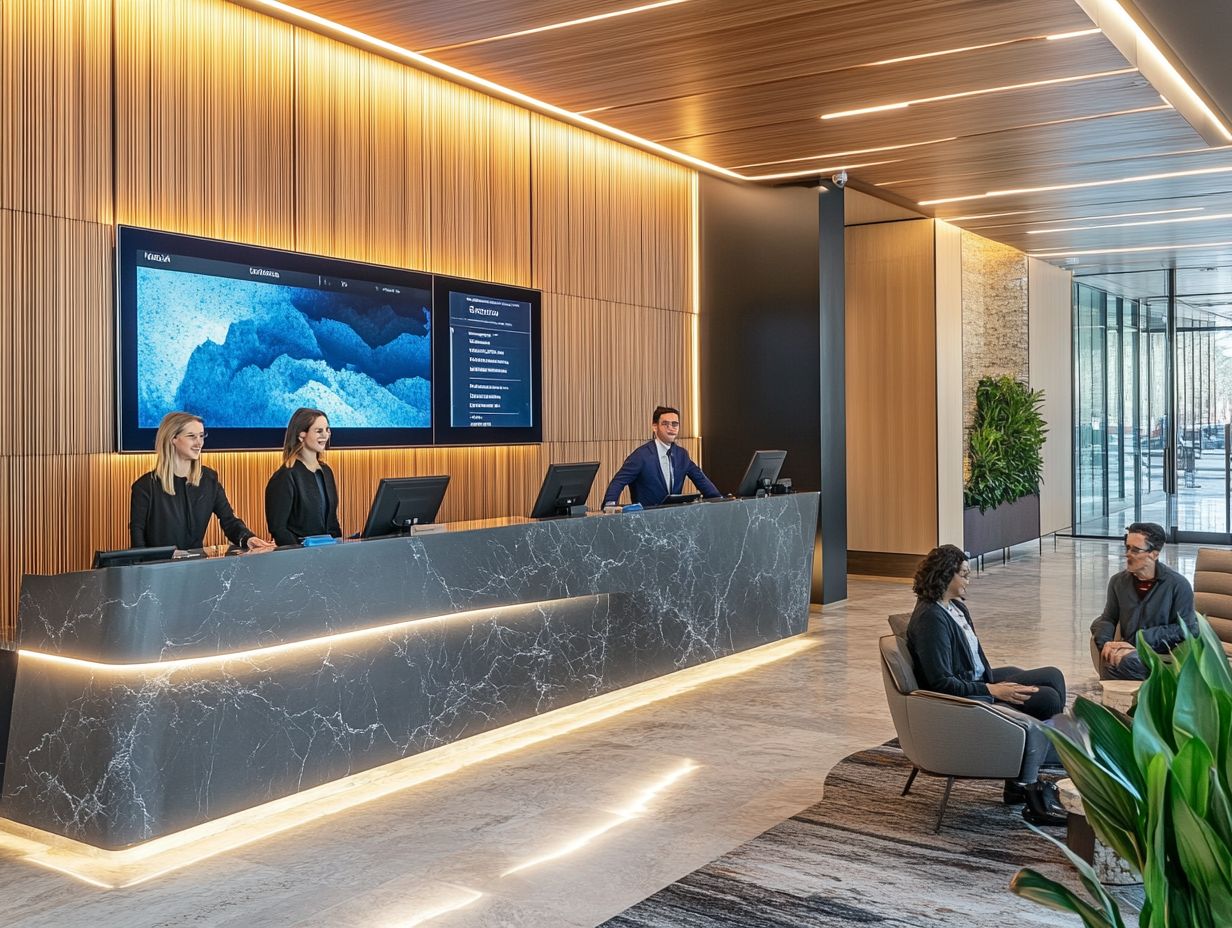
Mobile access has become essential in a strong CRM strategy. It allows you to enhance customer interactions anytime and anywhere.
With the rise of mobile CRM solutions, you can give your teams remote access to customer data. This delivers real-time insights that significantly elevate user experience and engagement.
This shift towards mobile-centric CRM systems grants greater flexibility and responsiveness in addressing customer needs. Utilizing mobile applications and cloud-based platforms fosters seamless communication with your clientele.
These technologies enable prompt responses to inquiries and support requests, leading to higher customer satisfaction rates. By automating routine tasks and using data analytics, you can operate more efficiently and make informed decisions that strengthen relationships.
The integration of mobile capabilities not only streamlines processes but also helps your team connect with customers in a personalized manner, significantly enhancing the overall customer experience.
3. Data Analytics and Predictive Modeling
Data analytics and using data to predict future behaviors are transforming how you approach CRM in the hospitality industry. These offer actionable insights into customer behavior and preferences.
With advanced CRM systems equipped for data analysis, you can generate real-time insights that inform your sales forecasts and engagement strategies. This enables knowledge-based decision-making.
This data-driven approach fosters proactive customer engagement and enhances service delivery. By using methodologies like clustering, regression analysis, and machine learning, you can more effectively segment your customer base and predict future purchasing behaviors.
For example, if a hotel chain analyzes booking patterns, it can identify returning customers and tailor special offers to their interests. Similarly, restaurants leveraging customer feedback and reservation data can refine their menus and marketing campaigns.
Look at major brands like Marriott and Starbucks, which have successfully used sophisticated analytics to enhance their loyalty programs and boost customer retention rates. This strategic approach leads to increased satisfaction and unwavering brand loyalty.
4. Social Media and Online Reputation Management
Social media has become an essential tool in your customer relationship management, also known as CRM, arsenal, enabling you to engage with customers and manage your online reputation with finesse.
By embracing social CRM strategies, you can seamlessly gather customer feedback and monitor user sentiment in real-time. This allows you to adapt your engagement strategies in tune with shifting market trends. This proactive approach not only elevates the customer experience but also builds brand loyalty.
Platforms like Twitter and Instagram enable you to respond swiftly to both positive and negative feedback, transforming potential crises into opportunities to showcase your commitment to excellent customer service.
Check out these impressive success stories:
- Starbucks harnessing social media polls for product development
- Nike engaging communities through social campaigns
These examples show how effectively boosting customer engagement can result in remarkable outcomes.
Keeping a consistent and authentic online presence and listening to your customers can greatly improve how people see your brand and foster deeper connections.
5. Loyalty Programs and Customer Retention
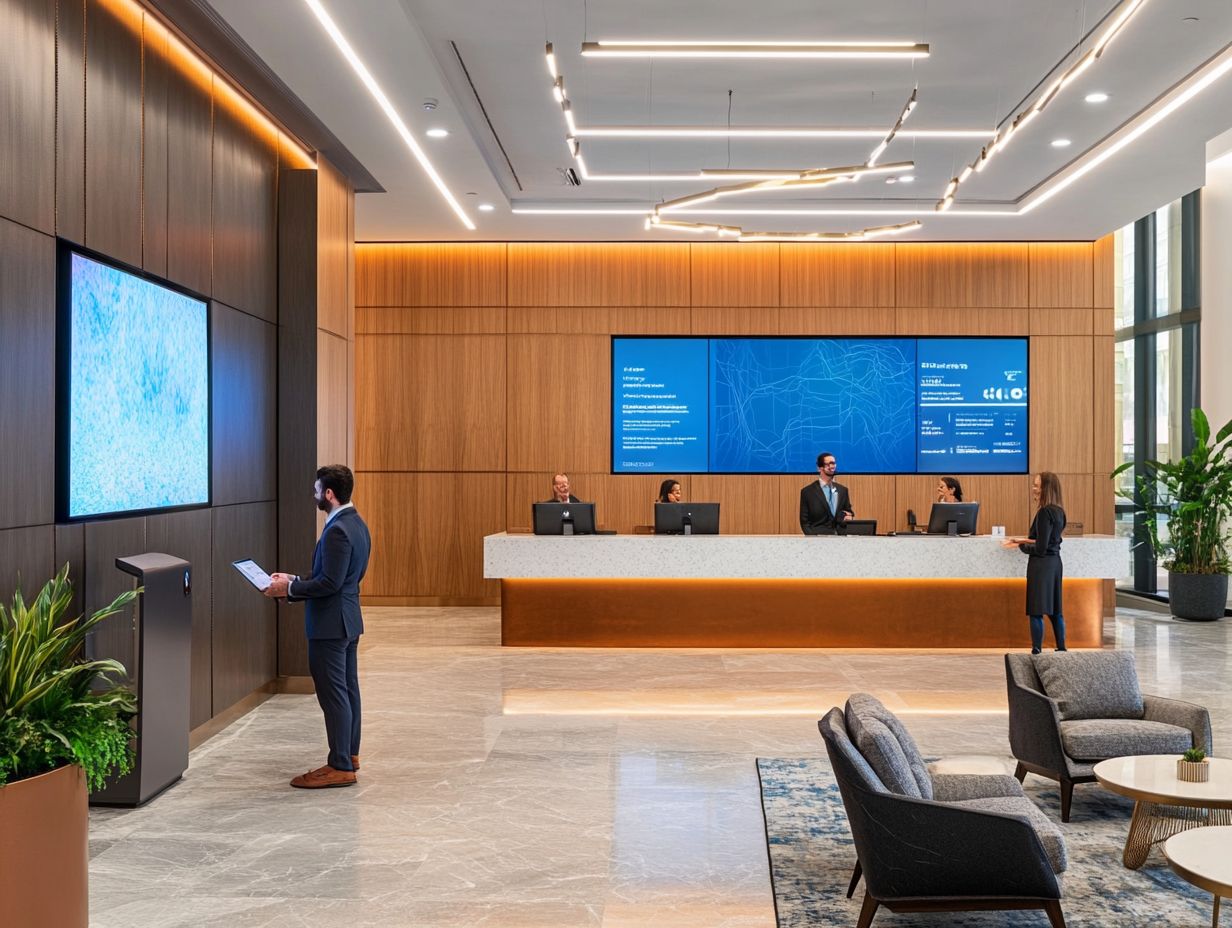
Loyalty programs are a cornerstone of your CRM strategies, expertly crafted to enhance customer retention by rewarding repeat business and nurturing long-term relationships.
By providing personalized service and tailored incentives, you can carve out a competitive edge that sets you apart in the hospitality industry. These programs not only boost customer loyalty but also yield invaluable insights into your customers’ preferences and behaviors.
With these insights, you can fine-tune your offerings and marketing strategies, ensuring you meet the ever-evolving needs of your clientele.
For instance, a well-executed loyalty initiative, like a points-based system at a hotel chain, can nudge customers to choose your brand over competitors. Your CRM systems can analyze participation data, pinpointing which incentives resonate most with your customers.
Take a page from successful loyalty programs like Starbucks’ rewards system, which has demonstrated a remarkable uptick in customer retention rates. Members are far more likely to return for that personalized experience, ultimately driving your revenue growth.
Implementing CRM Strategies in the Hospitality Industry
Implementing effective CRM strategies in the hospitality industry demands a thoughtful approach that aligns seamlessly with your business goals while enhancing customer interactions.
By concentrating on best practices and leveraging successful case studies, you can craft frameworks that not only optimize service automation but also elevate your sales performance.
It’s essential to tailor your CRM initiatives to the distinct needs of the hospitality sector, as this customization is key to driving customer engagement and satisfaction.
Best Practices and Case Studies
Exploring best practices for CRM implementation can reveal invaluable insights for your hospitality business, helping you enhance customer experiences and optimize sales enablement.
By examining case studies that showcase successful CRM applications, you can adopt strategies that leverage user data and analytics to create meaningful customer interactions and improve retention rates.
Analyzing industry leaders in the hospitality sector clearly illustrates that tailored communication strategies, personalized marketing initiatives, and efficient data management play a significant role in elevating customer satisfaction and loyalty.
For example, a leading hotel chain harnessed CRM tools to segment their audience based on preferences and past behaviors, resulting in targeted promotions that significantly boosted engagement.
Similarly, a boutique hotel transformed its guest experience by integrating feedback loops into its CRM system, enabling real-time adjustments in service delivery.
These case studies demonstrate that a strategic approach to CRM not only enhances guest experiences but also acts as a catalyst for sustainable business growth.
Start implementing these CRM strategies today to transform your hospitality business!
Implementing effective CRM strategies isn’t just an option it’s essential for lasting success in the hospitality industry!
Future Outlook for CRM in the Hospitality Industry
The future of CRM in the hospitality industry is defined by emerging trends, particularly the integration of artificial intelligence and automation. These advancements are set to revolutionize customer experience and streamline operations.
As market dynamics shift, understanding and anticipating customer needs will be vital for thriving in a competitive landscape. Digital transformation will drive the adoption of advanced CRM technologies, enhancing both engagement and efficiency for your business.
Predictions and Potential Developments
Predictions for the future of CRM indicate that AI trends will take center stage, leading to better service automation and a nuanced understanding of customer experience.
As you lean on technology to analyze market trends and customer data, the potential for crafting personalized and efficient CRM strategies expands significantly.
This evolution enables you to anticipate customer needs with precision. You can refine your overall engagement strategies.
With AI algorithms capable of processing vast amounts of data in real-time, you can uncover patterns and preferences that were once obscured.
This newfound insight enables proactive communication. It also ensures that your interactions are finely tuned to individual customer journeys.
By automating routine tasks, your teams can redirect their energy toward delivering exceptional service. This ultimately fosters increased customer satisfaction and loyalty.
Embracing these advanced tools helps you adapt to shifting market demands. You will be excited to see how well you can position your business to set new benchmarks for customer experience in your industry.
Frequently Asked Questions
What is CRM and why is it important for the hospitality industry?
CRM stands for Customer Relationship Management. It refers to the strategies and technologies used by businesses to manage and analyze customer interactions and data throughout the customer lifecycle. In the hospitality industry, CRM is crucial for building relationships, improving customer satisfaction, and increasing repeat business.
What are the top trends in CRM for the hospitality industry?
Top trends in CRM for the hospitality industry include personalization, mobile integration, social media integration, AI and chatbots, data analytics, and loyalty programs.
How does personalization play a role in CRM for the hospitality industry?
Personalization is key in CRM for the hospitality industry. It allows businesses to tailor services and offers to individual customers based on their preferences and past interactions, leading to increased satisfaction and loyalty.
Why is mobile integration important for CRM in the hospitality industry?
With the rise of smartphones, integrating CRM systems with mobile technology has become crucial. This integration enables better communication and engagement with customers, alongside real-time data collection and analysis.
How can AI and chatbots benefit CRM in the hospitality industry?
AI and chatbots are transforming CRM by providing 24/7 customer support and personalized recommendations. They also handle routine tasks, improving efficiency and enhancing the customer experience.
How does data analytics contribute to CRM in the hospitality industry?
Data analytics is essential in CRM for the hospitality industry. It allows businesses to track and analyze customer data, such as preferences and spending patterns, improving marketing strategies, customer service, and overall operations.
Explore these advancements today to transform your business!



